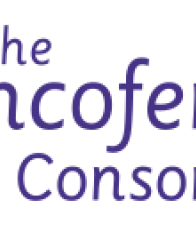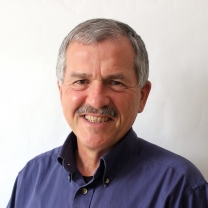 / Shared Benefits for Shared Communities?
Subscribe
/ Shared Benefits for Shared Communities?
Subscribe

How do we both respect the values of religious communities in health care AND share responsibility for the health care benefits that come with membership in state and national communities? How do religious beliefs, practices, and communities shape individual and public health?
The growing health equity movement in the United States is working to shift health and health care conversations from their common emphases on individual patients, their genes and behaviors and on doctors and their technologies, to the social determinants of health: those ever present social, political, and economic relations that promote health and/or illness on individual and community levels. Racism, poverty, and gender discrimination are perhaps the most studied social determinants of health. Perhaps the least recognized, if not the least examined of the social determinants of health, is religion.
Religion – from the Latin ligare meaning “to bind” or “to tie” – affects health in three key ways (according to one well known typology). Religion serves as a source of social support, of social control, and of social capital. Members of religious communities often support one another “in sickness and in health,” that is, in needed emotional, spiritual, and material care as well as in health promotion activities ranging from simply being together to organized group exercise. We experience religion as social control in rules and norms that influence health behaviors such as what foods are eaten, what sexual activity is encouraged, and what substance use is prohibited. And religious communities can promote social capital – the creation of new institutions and activities that strengthen the social fabric of the larger community by, for example, building trust. Notably, religious communities may also affect health negatively by these same means – by marginalizing persons, restricting healthy behaviors or encouraging unhealthy behaviors, and weakening the social order.
Health care sharing ministries (HCSMs) are charities formed by groups of Christians to enable them to join together to “bear one another’s burdens,” in other words, to voluntarily share expenses related to health care as well as to pray for one another in times of need. Applicants to HCSMs affirm a particular statement of Christian faith and agree to live a “biblical” lifestyle (little/no tobacco and alcohol use, and no sex outside “Christian marriage”). Close to a million persons (mostly U.S. residents) now belong to these groups (primarily three large ones) which, it can be argued, are a form of social capital: new societal institutions that offer social support and assert social control in the name of health and a faithful life.
As charities, HCSMs are not subject to the state regulatory oversight required of health insurance. Moreover, the Affordable Care Act (ACA) grants HCSM members an exemption from the individual mandate to carry health insurance as well as from the “shared responsibility” penalty for not carrying it. The key exemption criterion states that HCSM members must “share a common set of ethical or religious beliefs and share medical expenses among members in accordance with those beliefs.” Each HCSM defines the expenses eligible for sharing and given that they are not tethered to the ACA, they omit sharing expenses for many ACA-required services including for preexisting conditions. Furthermore, HCSMs do not share expenses for most routine preventive care services (physical examinations), reproductive services (including contraception), and mental health care services.
While HCSMs work extensively at the state and federal levels to distinguish themselves legally from health insurance, simultaneously they lobby for tax parity with health insurance. Without agreeing to the accountability standards of health insurance, and without sharing expenses for services deemed essential minimum benefits by the ACA, HCSMs “seek parity” with health insurers and employers in favorable tax terms.
Enter issues of the free exercise of religion. Should private religious charities formed to serve a limited group of persons be enabled by the ACA to “opt out” of otherwise mandatory contributions to the good of all? The ACA’s policy goals simply put, are affordable, quality coverage for nearly everyone. The individual mandate is an ACA attempt at creating a shared national responsibility, a kind of social solidarity for the fair distribution of health care’s benefits and burdens. This mandate functions to spread the financial risk and costs of health care across as large a group as possible. To exempt HCSM members from this national risk-sharing pool means that the risk and costs are spread across a somewhat smaller group, resulting in higher (even if minimally) risks and costs for those who remain. In short, HCSM members reap the benefits of the health care system without fulfilling corresponding responsibilities for adequate insurance coverage or for payment of the shared responsibility penalty.
Health care, I suggest, is a social good, involving social relations at multiple levels of collectivity including the family, religious groups, local communities, states, and the nation. Each level offers health care benefits and generates commensurable responsibilities. While HCSMs stress personal and Christian responsibility, HCSM members also members of state and national communities. By virtue of their membership in these larger communities, they receive health care benefits provided by state and national government (Medicaid, Medicare, the VA), by private insurers (Worker’s compensation), and by other health care providers (through discounts/“free care”).
Do HCSM members “give up” their commensurate national/state responsibilities for health care upon joining a ministry? Does the “freedom” that HCSMs enjoy promote social support, social control, and social capital in ways that foster health? This ACA exemption for HCSMs was not debated in Committee or on the floor of the House or Senate before the ACA’s passage in 2010. What should be the limits of religious freedom in US health care? We’re curious to hear from you about what you think!
Photo Credit: Sage Ross, "A young man with a sign reading "WE ARE OUR BROTHERS' KEEPERS" at a town hall meeting on health care reform led by Rep. John B. Larson," via Shutterstock, 2 September 2009.





